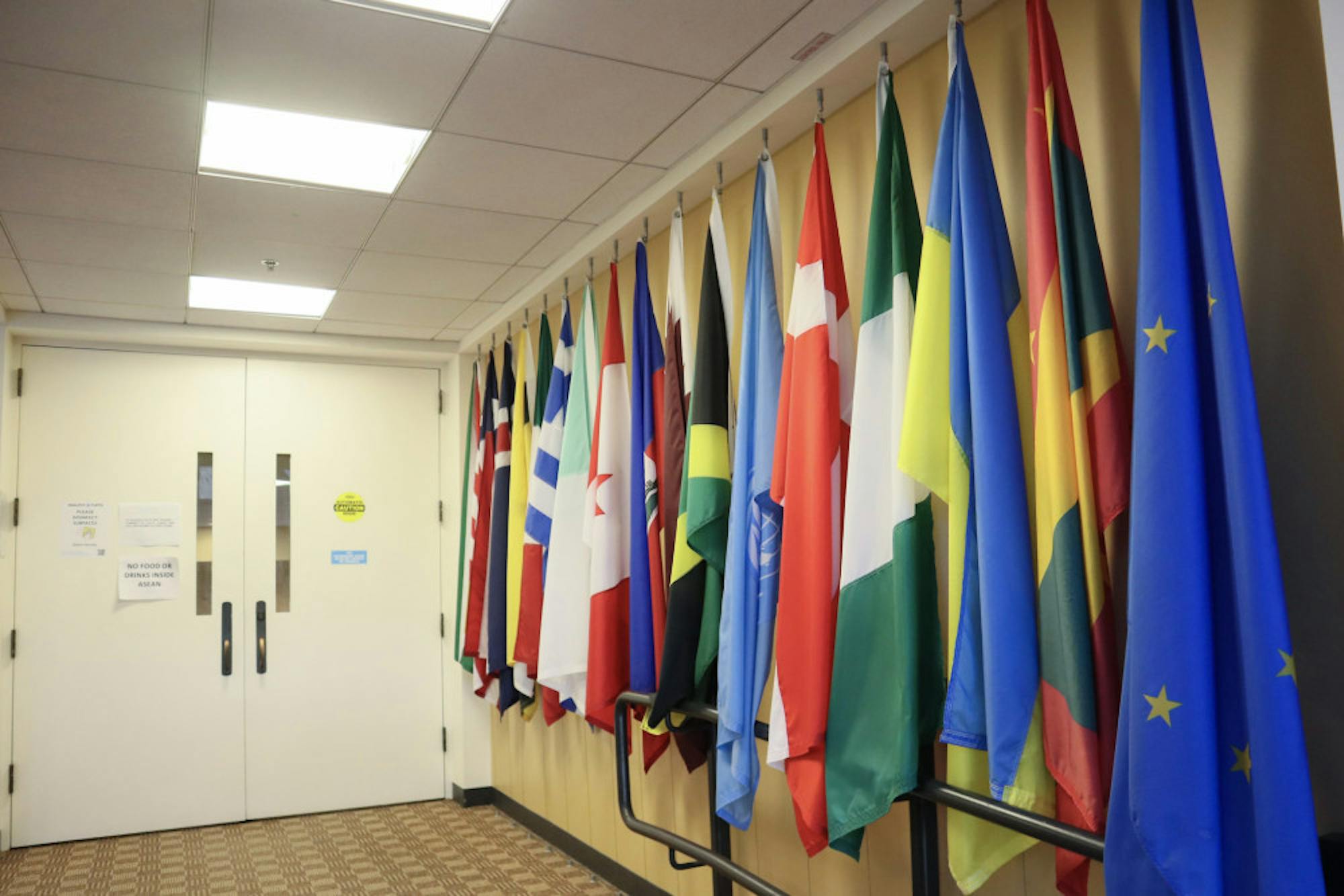For decades, the United States has been the most popular destination to go to college internationally. Known to be the ‘land of opportunity,’ students from all around the world choose to go to the world’s top colleges in the United States for the education quality, infinite opportunities and study abroad experience. In fact, according to research from the Institute on International Education, over one million foreign-born students were enrolled in colleges in the U.S. for the 2019–20 academic year, though that number has dipped since the onset of the COVID-19 pandemic. Coming from over 200 countries, millions of international students share the same goal: finding an opportunity to succeed.
Although studying in ‘the land of opportunity’ is supposed to be a dream come true, the adaptation process may not be as glamorous. One of the most common things international students experience during the first weeks of college is a social phenomenon called ‘culture shock’: The feeling of disorientation experienced by someone who is subjected to an unfamiliar culture, way of life or set of attitudes. Mastering English as the main language, adapting to a different climate, learning new transport systems and internalizing new norms are examples of culture shock and are challenges for international students.
Adapting to a new culture can be difficult. A study conducted by two professors at Queen’s University in Ontario, Canada showed that international students tend to socialize with people from their own culture the most. Shared language, customs and experiences of being away from home can often make these connections easier to develop.
Ekin Kaya, a first-year at Tufts from Istanbul, Turkey shared her experience. “One thing that all of us have in common is the difference in cultures and this adaptation we are going through,” she said, adding that “cultural differences can make the experience even harder for international students. Personally, there are times that I feel like I don’t even belong here.”
Many factors can aid this transition process. Collaboration between professors and students positively impacts international students’ academic performance. The Queen’s University study showed how international students who worked closely with their professors performed better in academic work, particularly if professors were aware of intercultural issues and their own ethnocentric biases. Luckily, Tufts professors are known to be very collaborative, approachable and supportive which can be a great support mechanism for international students navigating the transition process.
Another challenge for international students who leave their homes, families and communities to build a new life is homesickness. This can be psychologically challenging at the start. A 2002 study in the New Directions for Higher Education journal showed that international students often feel homesick and lonely and lack mental health support. To fill the void, socializing and trying their best to adapt to their new ‘home’ can be helpful.
Kaya mentioned homesickness as the greatest struggle she faces. She expressed her emotions as “I miss my family, my friends and a sense of belonging somewhere — a home — which is very normal because this is the first time being away from [my] home.”
With these challenges, navigating the international experience can be hard. However, it is important to evaluate the situation from different viewpoints. Although cultural differences may seem like a barrier, a diverse learning environment can positively contribute to one’s personal growth and world vision. International students from different cultural backgrounds can embrace these difficulties and lean into new cultural experiences, making their college experience even more rewarding.
Students can utilize the resources and support offered at Tufts. The International Center provides information and resources, while Counseling and Mental Health Service offers individual and group counseling. When sharing her experiences with the campus resources, Kaya said “The International Center introduced the resources … but I feel like in order to eliminate these bad experiences, they could have checked up individually on us.” Still, these are places where students can seek support and guidance.
There isn’t one way to navigate this process. As Ekin said, “Everyone's experience is different and unique.” Personally, pushing myself out of my comfort zone and taking advice from international upperclassmen has helped a lot. They advised me to join clubs and always keep in mind that every international student is experiencing the same emotions and hardships. I also allowed myself to miss home and my family, which enabled me to express my emotions rather than bottling everything up. Prioritizing our purpose here — getting educated — can also make a difference. Although the international experience can be challenging, seeking out resources and building connections can make it one of the most rewarding experiences of your life.






